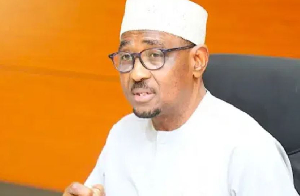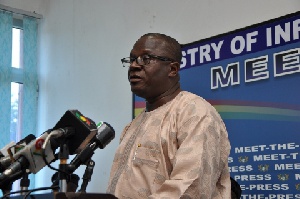Heads of government departments and agencies in the Upper West Region have been advised to stop complaints about the inadequate allocation of logistics and resources at workplaces, but come out with innovations to make the structures and systems work.
Alhaji Amidu Sulemana, the Regional Minister, said complaints from heads of government departments and agencies about logistics and resource challenges and constraints were not what mattered most.
“What matters most is what you can do with the little for the structures and systems to work effectively and efficiently”.
He said as heads, their leadership and managerial style was key to the successes or failures at their workplaces, and they should not blame failures solely on challenges and constraints of resources and logistics.
Alhaji Sulemana was addressing heads of government departments and agencies, district chief executives, district coordinating directors, planners and development partners at this year’s Mid-year Review Forum in Wa.
He pointed out that achieving the desired results out of “nothing” was what mattered most, because constraints and challenges were already well known to all and should not be used as an excuse.
Alhaji Sulemana said government and development partners had committed significant resources to support a wide range of development interventions that had been designed to improve the socio-economic conditions of Ghanaians.
He said all government departments and agencies at the regional and district levels were tasked with the responsibility of implementing programmes and projects under the Ghana Shared Growth and Development Agenda (GSGDA Two) to positively transform the lives of the people.
Alhaji Sulemana urged women leaders to lead the crusade against female genital mutilation, which was still practised in some parts of the communities.
He also urged all district chief executives to make the issue of open defecation their priority area, and work harder to find solutions to the practice in the various communities.
Madam Gloria Nyam Gyang, a representative of UNICEF, charged stakeholders to work more to improve maternal and child deaths, malnutrition among children, and female genital mutilation.
She said child protection, ante-natal attendance among pregnant women, gender disparity in schools, and birth and death registration, should be scaled up.
Madam Gyang tasked stakeholders to improve the quality of education, especially performance at the Basic Education Certificate Examinations, water provision and children enrollment in schools, regretting that more than 20,000 children of school-going age were not in school in the region.
The review is a process of instilling principles of transparency and accountability among stakeholders in local governance.
It is also to create a platform for the regional and district leaders and their technical support teams, as well as development partners and other stakeholders in the region to assess the development status of the region based on GSGDA Two. as the measuring rod to success.
General News of Saturday, 15 August 2015
Source: GNA
Constraint is not an excuse for failure - Minister
Africa












